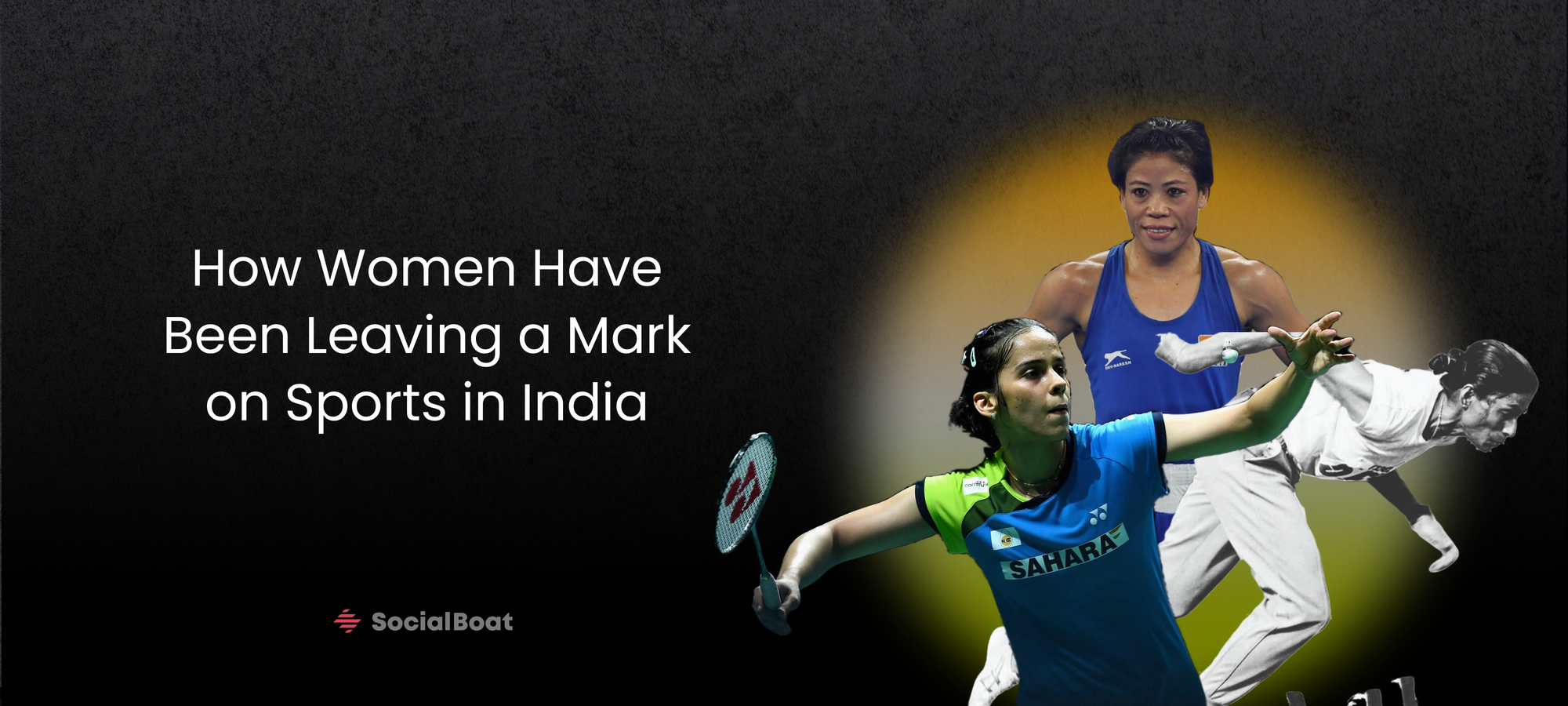How Women Have Been Leaving a Mark on Indian Sports
Out of the thirteen Olympic medals that India has won since 2000, five of them have been won by women. At the Rio Olympics in 2016, India would have returned with no medals, had it not been for its women athletes P.V. Sindhu and Sakshi Malik.


Out of the thirteen Olympic medals that India has won since 2000, five of them have been won by women. At the Rio Olympics in 2016, India would have returned with no medals, had it not been for its women athletes P.V. Sindhu and Sakshi Malik.
Even so, the truth remains that as a general trend the participation of women in sports has always been lower than men but in the recent few years we see that changing in India. In this blog, we will map out how the participation of women in sports has changed over the years and the valuable contributions made by some of the exceptional women athletes.
1952- The First Time Indian Women Participated in International Sports

Just five years after independence, Mary D’Souza was the first-ever Indian woman to participate in the 1952 Olympic games at Helenski. Mary had won two medals in the 200m and 4*100m races at the Asian Games in the previous year. With no access to professional coaching or to government funds, Mary made it to the Olympics by raising funds through a dance competition. Her presence on the map of women in Indian sports is significant because she made a point- that women too were capable of participating at the international level, and with proper assistance, they could do wonders for the country.
Mary was accompanied by Nilima Ghose to the Olympics and both represented the women of the country. In the same year, Rita Davar and Gool Nasikvala represented India at the international level in tennis and table tennis respectively. They performed exceptionally well.
1970- Kamaljeet Sandhu Wins the First Fold at Asian Games

Participation in sport was one thing, and it was a landmark moment, but winning a gold was the goal accomplished by Kamaljeet Sandhu in 1970 at the Bangkok Asian Games. She became the first Indian woman to win a gold medal at an international event, inspiring thousands of others to dream of it.
1982- Asian Games- Women in Sports, Not an Exception

The Asian Games in 1982, held in New Delhi, was one of the major turning points in the history of women's sports in India. Up until now, the victories and participation by the women had been exceptions. This was the year when they were finally becoming the norm. All hopes were on the men’s hockey team that year but in a pleasantly surprising turn of events, the Indian women’s hockey team won the gold medal and a wave of joy ran throughout the country. MD Valsamma clinched the women’s 400m hurdles to become the second Indian woman to win an Asian Games gold medal.
The year was also very important because India’s “Payyoli Express,” P.T.Usha won two silver medals in the 100m and 200m races and made her way to the Olympic games.
1984- Sets the Stage for Indian Women Athletes in the Olympics

Although there were no medals won by the women this year, their victory lay in the expectations that they had raised. Indian women were being considered strong competition. The Indian women's 4x400 metre relay team of PT Usha, Shiny Abraham, MD Valsamma, and Vandana Rao set an Asian record of 3:32.49 seconds. PT Usha’s 100m race was a breathtaking event where she missed a medal by a nanosecond, receiving praise from the entire world.
2000 Sydney- Winning Medals Ever Since

2000 was a magical year for India’s sportswomen as it brought an end to the long wait for a medal. Karnam Malleswari finally became the first Indian woman to win an Olympic medal- a bronze in weightlifting. Since then women have won medals for the country in every Olympic game.
India has won 13 Olympic medals since the Sydney 2000 Olympics; women account for five of them. This is a sign of the country's changing sporting landscape; the 15 medals won before 2000 were all claimed by men.
2002- Initiation of Boxing and Wrestling for Women

Indian women had made a mark on the track and field events by now. With Mary Kom becoming the world champion in 2002, women started venturing into other sports. Indian women in boxing was a pathbreaking moment because even today boxing and wrestling are considered masculine sports. It is then auspiciously ironic that boxing and wrestling have become those sports in India where women continue to win medals. Mary’s career inspired an entire generation of Indian women to participate in boxing.
A few years later we saw the Phogat sisters, trained by their father, winning championship after championship and establishing their father’s statement- “hamari chhoriyan chhoron se kam hain ke (My daughters are nothing less worthy than sons).
2005-08- The Rise of Sania Mirza and Saina Nehwal

What Mary Kom and the Phogat sisters did for boxing and wrestling, Sania Mirza and Saina Nehwal did for tennis and badminton for women in India. In the year 2005, a young Sania Mirza faced the world's number one Serena Williams and started her international career. She went on to become the world's number one doubles player and added fuel to the dreams and goals of many Indian women. Two years later, Saina Nehwal won the Philippines Open and went on to reach the Olympic quarter-finals.
Women have come a long way in sports since independence and while the conditions might not be their best today, they are changing for the better. Women athletes, inspired by the previous ones, are doing brilliantly and inspiring the incoming generation to step into their shoes. The mindset of the people is also changing and aspiring women athletes have more access to resources and funds, paving the way for a better future.
For many more such inspirational stories, visit SocialBoat.
